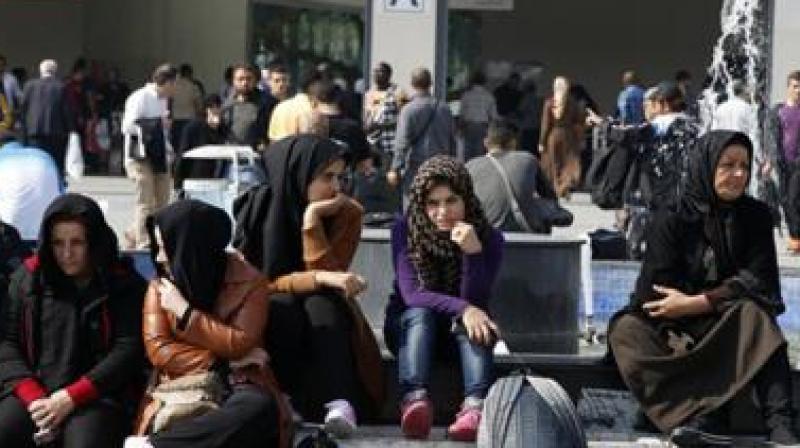Germany to return new asylum seekers to Greece from March

Berlin: Germany will begin returning asylum seekers to Greece from mid-March, an interior ministry spokesman said on Thursday, essentially lifting a five-year suspension on such transfers because of poor conditions there.
Under the EU's so-called Dublin rules, would-be refugees must file for asylum in the first member-state of the bloc they enter, often the Mediterranean nations of Greece and Italy.
If asylum seekers have travelled on to other EU nations, they are to be returned to their first port of call. But that requirement had been halted for Greece, which together with Italy has been the main point of entry for the more than one million migrants who have entered the bloc since 2015 fleeing war and poverty in the Middle East and Africa.
A German interior ministry spokesman told AFP that Germany would reinstate the Dublin rule in two months' time and return newly arrived asylum seekers to their first EU port of call.
"In line with the recommendation from the European Commission, Germany believes that such transfers will be possible from March 15," said the spokesman, Tobias Plate.
The EU recommended on December 8 that member states resume sending asylum seekers back to Greece from March next year, after such transfers were halted since 2011.
Athens has criticised the EU's assessment, with Migration Minister Yannis Mouzalas saying the current legal framework was "unable to respond to the historic migration flows and leaves the burden to the member states that migrants first arrive in".
German refugee relief group Pro Asyl has also raised concerns, warning that the measure would put the asylum system in Greece, a country still recovering from a deep debt and economic crisis, under further pressure.
Germany's 2015 decision to open its doors to Syrian refugees, and to effectively suspend Dublin rules for them, brought 890,000 asylum seekers in that year alone.
But the move by Chancellor Angela Merkel has proved controversial, and the government has since sought to bring numbers down.
Last year, the figure dropped sharply to 280,000 arrivals, largely due to the closure of the Balkan overland route and a fragile EU-Turkey deal to limit the mass influx.
The plan to return asylum seekers to Greece could further slash new arrival figures, ahead of general elections expected in September, when immigration is set to figure as a key issue.

